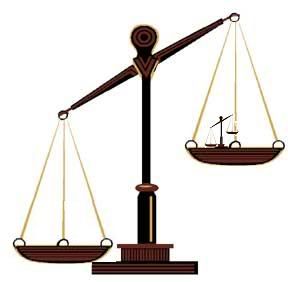The things we do should be of some benefit, or else why do them? We can classify the benefits as things that pay off later, or things that pay off at the present moment.
 Things we ought to do lead to some benefits later, even though we don’t necessarily have to do them. For instance, we ought to save money for retirement but many people live happy, productive lives without doing so. Eventually, this may come back to bite them but that certainly doesn’t have to be the case. For most of us, these things are essentially forms of work that are not so enjoyable or pleasurable. Taken to the extreme, engaging solely in things we ought or have to do leads to workaholism.
Things we ought to do lead to some benefits later, even though we don’t necessarily have to do them. For instance, we ought to save money for retirement but many people live happy, productive lives without doing so. Eventually, this may come back to bite them but that certainly doesn’t have to be the case. For most of us, these things are essentially forms of work that are not so enjoyable or pleasurable. Taken to the extreme, engaging solely in things we ought or have to do leads to workaholism.
Things we like to do are usually those things that we do for our own pleasure and happiness right now. In a perfect world, we like to do the same things we ought to do (like the person that actually enjoys eating sensible meals and running 60 minutes a day). In an imperfectly selfish world, we practice extreme hedonism, engaging in actions we enjoy at every given moment to the detriment of anything that we ought or have to do to enjoy life later. Quoting from the 1911 Encyclopedia Britannica (online here):
The earliest and the most extreme type of hedonism is that of the Cyrenaic School as stated by Aristippus, who argued that the only good for man is the sentient pleasure of the moment. Since (following Protagoras) knowledge is solely of momentary sensations, it is useless to try, as Socrates recommended, to make calculations as to future pleasures, and to balance present enjoyment with disagreeable consequences. The true art of life is to crowd as much enjoyment as possible into every moment.
Both workaholism and hedonism can be characterized as over-indulgences at one pole or the other. In both cases, one chooses to do things that satisfy one part of our life while ignoring the other part, whether that is all work and no play or all play and no work. For most of us, this clearly does not lead to lifelong feelings of satisfaction and contentment, nor does it typically lead to enjoyable and responsible lives for friends and family, particularly those that depend on us.
Presumably, one’s life should reflect a certain degree of balance between the pursuit of momentary pleasure and the pursuit of future gains. Such is the balance of life. Sometimes, responsibilities and discipline dictate that we must spend time doing things that we have or ought to do, but sometimes we should do things that we want to do. The trick is not spending too much time with one over the other.
What we want to accomplish here is a roadmap to guide our pursuit of both short- and long-term benefits, with an eye toward finding a way to make at least part of our ought to do list as enjoyable as possible.

